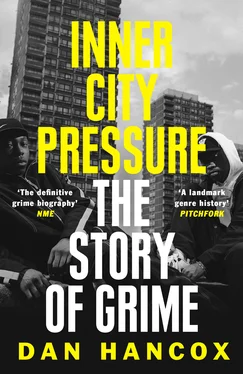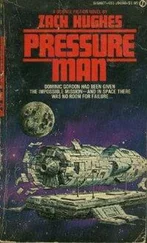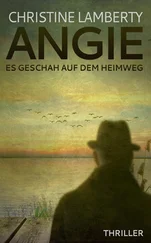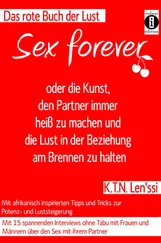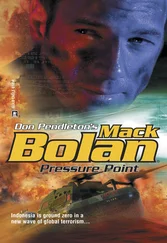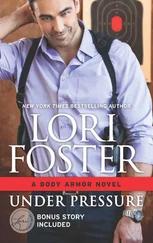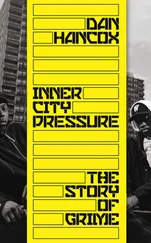Indeed, maturity was reflected in the aspirational dress codes in UK garage clubs, where shirts and shoes (no trainers!) would often be a compulsory component of the door policy, and where the narcotics of choice were champagne and cocaine – even while the music’s primary creators and ravers were from the same humble inner London backgrounds as the junglists before them, and the grime kids who would follow. No hats no hoods! Only two school children may enter the rave at any one time.
It’s a tension that was a rich seam for British underground dance music more than once: the wicked and the divine, the debonair and the scuzzy, rubbing up against one another. In the first two years of the millennium, UK garage was being stretched in two directions at once – a process which is always likely to make something break in the middle. On the one hand, the poppy, commercial end was thriving, and producing numerous hits: singer-MCs like Craig David, Ms Dynamite and Daniel Bedingfield became stars, and tunes like Sweet Female Attitude’s ‘Flowers’ and DJ Luck and MC Neat’s ‘With A Little Bit Of Luck’ were ubiquitous.
But something was pulling hard in the opposite musical direction – to the dark side. On this side of UK garage’s personality split, mostly male MCs dominated instead of crooning singers; the instrumentals conjured not a glitzy VIP area but a low-lit council estate. It was inner London’s millennial aspiration and promise versus the grim reality that persisted when those aspirations failed to materialise. Darker garage that was built around breakbeats and accompanied by jungle’s hectic lyrical energy was thriving on pirate radio, while the more established, soulful tracks dominated the charts and high-street clubs. When catchy, sample-heavy novelty records like DeeKline’s ‘I Don’t Smoke’ started to take off in the garage clubs, and the likes of Heartless Crew, So Solid Crew and Pay As U Go Cartel started to have hits themselves, the divisions deepened. For the old guard, there was a ‘last days of disco’ feel to the new millennium: the resplendent purity of one of the greatest periods in British music history having to come to terms with its own looming mortality – these were the best days of our lives, and this is how it ends? With some hyperactive teenagers chatting about guns and drug dealing, instead of a smooth, 2-step shuffle and some sweetly sung love songs? With a song that samples the Casualty theme tune and a Guy Ritchie film? No wonder they were upset.
Bizarrely, the tensions between the old guard and the new wave came to a head in the unlikely context of the UK garage committee meetings. It sounds somehow reminiscent of the kind of sit-down familiar from The Sopranos , where representatives of the mafia families would thrash out their differences, negotiate and cut deals. A similar thing had happened in the jungle scene too, when prominent figures had attempted – in some cases, successfully – to blacklist General Levy’s raucous party-starting anthem ‘Incredible’, after he had claimed to be ‘runnin’ jungle’. The substance of the tension at the turn of the millennium was that the new guard were sullying garage’s grown-up reputation, both musically and in terms of the rebellious gangster pose they sometimes presented to the world; they didn’t like the chat about gats and violence, and they didn’t like the exuberant use of novelty samples either. The straw that broke the camel’s back was Oxide and Neutrino’s ‘Bound 4 Da Reload’ going to number one in May 2000, and ‘I Don’t Smoke’ following it in to number 11, after months as an underground smash. Prominent gatekeeper DJs like Norris ‘Da Boss’ Windross and Radio 1’s The Dreem Team refused to play either record. ‘I don’t like many of those records of that style,’ DJ Spoony from the Dreem Team told the Guardian at the time. ‘I like music with more soul and groove in it.’ When So Solid Crew appeared on their Radio 1 show that winter, the atmosphere was frosty to say the least: ‘Give the youth of nowadays a chance to bust through that barrier,’ Romeo told them, ‘cos you lot have been there for so long, and it’s our time now.’
In the meetings, there was some discussion of whether the darker, ‘breakbeat’ garage would also attract more undesirable elements to the clubs. ‘I was always bearing the brunt of it,’ recalls Maxwell D. ‘“Who’s this crew, Pay As U Go, talking all this gangster stuff? We don’t want them in the dances, they’re thugs, they’re this, they’re that …” They really didn’t want to give us the mic.’ (Unfortunately for him, Maxwell found himself on the sharp end of exactly this kind of condescension and obstruction again, years later, when he made a light-hearted funky house tune about his mobile phone called ‘Blackberry Hype’ – the kids loved it, the grown-ups, less so.)
For Matt Mason, editor of RWD magazine from 2000–05, who also DJed on garage station Freek FM, the combative, transitional period was exciting, even if the end result was inevitable: ‘There was a real sense the new guys were doing something different, that a chasm was opening up in garage. It’s interesting because it really crept up. First there was just some really weird records, I think from about 1999. There was the Groove Chronicles tunes first, like okay, that’s different, and some MJ Cole records, like … all right, some different thoughts have gone into this. And then there was a record by Dem 2, under the alias US Alliance, called “All I Know”, and “Da Grunge” remix of it was this fucking mutated thing, that had mutated out of garage, and I remember hearing it at Twice as Nice and just thinking, “What the fuck is that? That’s not garage.”
‘At first I really didn’t want to see garage splinter, because I liked that you could play a weird breakbeat record into a Todd Edwards record, into an old school, Strictly Rhythm house record, into a DJ Zinc record at 148bpm, I felt this was such a good thing, don’t let it break into a thousand pieces and die. But obviously it did, and that was great too.’ Mason attended the UK garage committee meetings, which were hosted and coordinated by the old guard, with Norris Windross as chairman, Spoony as spokesman, and well-established DJs such as Matt Jam Lamont and MCs such as Creed on one side; positioned against them, the likes of Mason, Maxwell D, producer Jaimeson and MC Viper:
‘We went along because we wanted to give the new generation a voice,’ Mason tells me over Skype from his home in California. ‘I really liked all the guys on the other side, but at the time I butted heads with them, especially Matt Jam; I remember him having a go at us for putting a grime artist on the cover of RWD – it was one of the MCs from Hype Squad, this young crew who were on Raw Mission FM. This was still only 2001, it was a kid sitting on a bike and he was making gunfingers. And they all said, “You’re promoting violence, you shouldn’t be promoting these artists, this isn’t garage,” and I said, “Well, look: they’re playing it in garage stations and garage clubs, and they’re buying the records in garage shops, from the garage section. And I think you’re right, I think maybe this isn’t garage, and it’s becoming something else – but, we absolutely should be fucking covering it, of course it’s going to be on our front cover.”’
Oxide and Neutrino, as members of So Solid Crew and also a very successful duo in their own right, responded to the ire sent their way for their scrappy, cheeky ‘Bound 4 Da Reload’ tune with an appropriately punk follow-up, called ‘Up Middle Finger’, describing the garage scene’s jealous whining about their success, and bans in clubs and radio stations on playing their songs. ‘All they do is talk about we, something about we’re novelty, cheesy … did I mention we’re only 18?’ They had sold 250,000 copies of ‘Bound 4 Da Reload’, and ‘Up Middle Finger’ became their third Top 10 hit in a row. That record scratch was the sound of the old guard being rewound into the history books. ‘Garage didn’t really want us involved in their scene,’ as Lethal Bizzle said years later, ‘so we started making our own thing.’
Читать дальше
